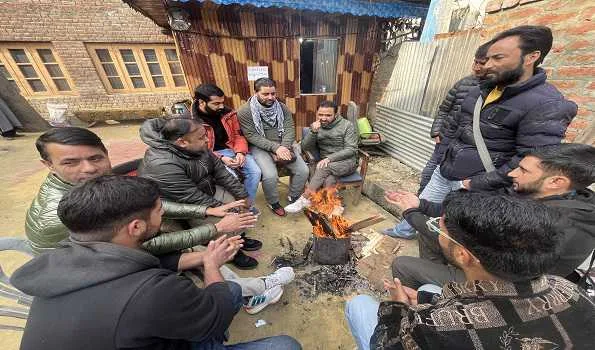Srinagar: The cold wave continues to freeze Kashmir, with Srinagar recording a minimum of minus 5.3°C on Tuesday, officials said.
The minimum temperature at Srinagar recorded during the intervening night of Monday and Tuesday was just a notch below the season’s coldest observed on December 10 at minus 5.4°C.
This was 3.3°C below normal of minus 2.0°C during this period of the season for the summer capital of Jammu and Kashmir, the Meteorological Centre Srinagar said.
The cold wave will continue to prevail over the scattered and isolated places of the Kashmir Valley.
The MeT office said the weather will remain generally dry till December 21.
It said that a feeble Western Disturbance (WD) is likely to hit and can cause light snow over higher reaches of the Kashmir Valley towards late evening/night of December 21 to 22 early morning, and thereafter the weather will remain dry till December 26.
The tourist spot of Pahalgam remained the coldest place and witnessed a further fall in the night temperature, recorded at minus 6.8°C on Tuesday against the minus 5.0°C a day ago. This was 2.3°C below normal for the Valley of Shepherds in South Kashmir’s Anantnag district.
The minimum temperature at Qazigund, the gateway town of Kashmir, also witnessed a significant drop in the minimum temperature and was recorded at minus 6.0°C against the minus 4.0°C on Monday, and this was 3.7°C below normal for the South Kashmir place during the period.
Kokernag in south Kashmir further slipped down and recorded at minus 5.7°C against the minus 3.9°C the previous night, and this was 3.6°C below normal for the picnic place of south Kashmir.
The ski resort of Gulmarg settled at 4.0°C for the second consecutive day on Tuesday. This was 1.0°C above normal for the valley of meadow in north Kashmir’s Baramulla district on this day.
The frontier Kashmir’s Kupwara district dipped to a low of minus 5.6 on Tuesday against the minus 4.2°C recorded the previous night, and this was 2.9°C below normal for the border town during this period of season, the MeT office.
UNI


